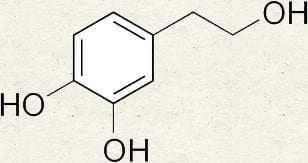
Research carried out at the Carlos III Institute in Spain has led to the development of a novel molecule from hydroxytyrosol, a potent antioxidant found in olives. It is hoped that the antiviral and anti-inflammatory properties of the new molecule will act as a microbicide to reduce the transmission of HIV.
Hydroxytyrosol is found in high concentrations in the olive leaf and in smaller amounts in extra virgin olive oil, and acts in combination with other phenolic compounds in olives to give the characteristic bitter taste of olives and olive oil. The new molecule, developed and patented by Spanish company Seprox, is the result of chemical and enzymatic modification of hydroxytyrosol to increase its potency and enhance its antiviral and anti-inflammatory properties.
The new microbicide differs from other products currently available in that, rather than stopping the virus from entering the body, the compound prevents the integration of the virus genes into those of the infected person, thereby stopping the virus from replicating and spreading. A virus needs to integrate into host genes in order to survive, so preventing this integration process leads to the death of the virus.
The new compound also confers other advantages over current microbicides due to increased anti-inflammatory properties. There is some evidence that risk of infection with the HIV virus is increased in cases where vaginal inflammation is present. It is hoped that by reducing this inflammation, the new molecule will further minimize virus transmission.
The European Commission-funded project has already shown a 100 percent success rate in in vitro testing, and primate testing is due to begin in coming months. If those tests indicate an increased protection of at least 50 percent, human trials will follow — however project managers hope to achieve a figure closer to an 80 percent increase in protection. If this level is demonstrated, the gel product will be on the market within five years. Due to low costs of synthesising the molecule, the price of the product would rival that of condoms.
This is not the first time that olive oil has been indicated as potentially useful in the fight against HIV. Researchers from the University of Granada showed that maslinic acid, a natural product extracted from olive pomace oil in mills, could result in a slowing in the spread of the HIV virus throughout the body by up to 80 percent.








